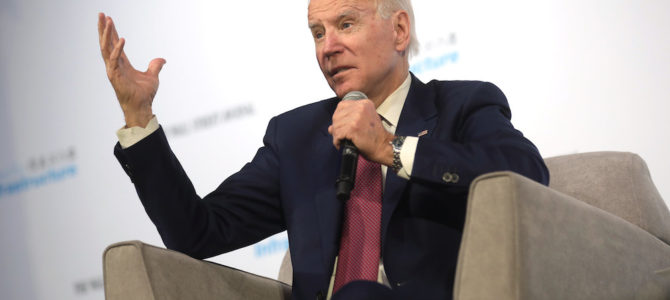
The corporate media has refused to cover the substance of the New York Post’s bombshell reporting on Hunter Biden’s recovered laptop and emails, not because there’s nothing to the story or because the emails are fake, but because the story itself is, on its face, harmful to Democratic presidential nominee Joe Biden.
That’s not to say news outlets haven’t been writing about the Post’s reporting. They’ve simply decided to cover the meta-narrative—the story about the story—while studiously ignoring what Hunter Biden’s emails reveal about his family’s overseas business dealings and influence-peddling.
Here’s how it works. Instead of aggressive follow-up reporting on the content of Hunter Biden’s emails, which is what you’d expect from news organizations, we’ve gotten a wave of process stories about the “anatomy” of the Post’s “dubious” reporting, censorship stories about Twitter and Facebook, and wild conspiracy theory stories about a rumored Russian disinformation plot.
Last week when all this broke, the focus quickly shifted from Hunter Biden’s emails to a decision by Facebook and Twitter to censor the Post’s reporting, and, in Twitter’s case, lock the Post’s official account for posting “hacked” materials (there’s no evidence the emails were hacked). When Twitter tried to walk back but also justify its draconian policies, the media reported on that, and when a handful of Republican senators announced they’d be subpoenaing Twitter CEO Jack Dorsey over the imbroglio, the media reported on that, too.
What they didn’t report on is the obvious thing the emails reveal: Hunter Biden was trading on his family name overseas, and Joe Biden, despite his many denials, seems to have been aware of this and might have even been a part of it.
Understand what’s going on here: The media will report on almost any aspect of this story, no matter how tangential or relatively insignificant, rather than grapple with the story itself.
Almost nothing is too trivial on this front. Over the weekend, we got stories in The New York Times and New York Magazine about behind-the-scenes dissent from a handful of anonymous Post employees who thought the Biden story shouldn’t have run. The Times article goes into great detail about whose bylines were attached to the Post’s reporting, how long each reporter had been at the paper, where he or she had worked previously, and the process top Post editors went through before publication.
Same for the New York Magazine article, which also tacitly dismissed the substance of the Post’s reporting—“supposed” scoop, “purported” emails—while quoting anonymous Post reporters grousing about how they’ve been “bracing” for the Post to “go pro-Trump before the election.”
What meager follow-up reporting on the substance of the emails we have seen has almost all been for the purpose of undermining the Post. The Washington Post, for one, was quick to “fact-check” the Post by casting vague aspersions on its reporting while failing to offer any new information or insights into the trove of emails detailing Hunter Biden’s foreign business deals.
Even more embarrassing have been outlets like CNN and USA Today, which, citing unnamed sources, breathlessly speculated that the FBI was investigating whether the emails were a possible “disinformation campaign” originating from—where else?—Moscow. (Director of National Intelligence John Ratcliffe on Monday laid these feverish rumors to rest, saying the recovered laptop and emails are “not part of some Russian disinformation campaign.”)
The Media Can’t Handle The Truth
The media’s preoccupation with the provenance of the laptop and the emails—are they “hacked materials” or are they part of a shadowy plot hatched by the Kremlin?—is meant to distract the broader public about what the laptop and emails actually contain.
After all, the last thing a media establishment in thrall to the Democratic Party wants to do is ask substantive questions about any of this. Why did a Ukrainian oligarch thank Hunter Biden for an introduction to his father in 2015 when the elder Biden was the Obama administration’s point-man on Ukraine? What did Hunter Biden mean when he told a Chinese energy firm that a lucrative deal would be “interesting for me and my family”?
The press isn’t interested, just like they weren’t interested in a recent U.S. Senate committee report on the Bidens’ complex financial transactions in Ukraine and elsewhere. I mean, if you’re not curious why the wife of the former mayor of Moscow would pay Hunter Biden $3.5 million, then you’re not going to be curious about any of this other stuff.
To be clear, it doesn’t matter what the Post or any other news outlet actually reports, or how airtight their reporting is. It doesn’t matter that no one, not even the Biden campaign, has denied the authenticity of the emails in question. It doesn’t matter that Fox News has independently corroborated one of the emails that indirectly references Joe Biden as one of six recipients of “renumeration packages” from the aforementioned Chinese energy firm. It doesn’t matter that the laptop came from a Delaware computer store and not, you know, Russia.
The mainstream media will not, under any circumstances, treat this as a serious story. The same media establishment that was willing to perpetuate a years-long Russia collusion hoax, for which it relied on an outlandish dossier paid for by Hillary Clinton’s campaign, will not countenance the Hunter Biden laptop story—no matter what.
They won’t do it for the simple reason that it will almost certainly hurt Biden’s White House bid, and they can’t have that.









